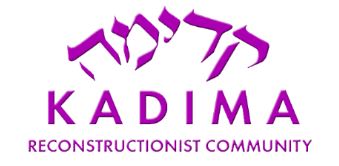And every year leading up to February, I hear people ask the question: does it make sense to honor these months that highlight things that we should actually focus on everyday?
To consider this annual question, I call to mind the Jewish month of Tishrei. One could call Tishrei “Teshuvah Awareness/Action Month.” We have three full weeks of festivals, acknowledgements, feasts, and fasts to call to mind the work of return, resilience, transformation, and repair that is teshuvah. And yet, as Rabbi Eliezer told his students in the Talmud: “...all of one’s days should be spent on teshuvah.” In other words, yes, we should do teshuvah every single day, and yes, perhaps it is useful to highlight teshuvah for a particular season to amplify and elevate its importance – especially for something that is under threat or under-attended to, and needs some boosting. Like teshuvah, sadly.
And perhaps this is true of Black History and for Jewish Disability Justice as well. Sadly.
Using teshuvah as a case study seems apt since while this month can catalyze our work to combat racism and ableism, it is also useful to reflect on where we have missed the mark and where we still have work to do on these topics. For example, in June 2020, Kadima signed onto the Not Free to Desist covenant committing to seven practices toward racial justice in Jewish communities. We committed to achieving all seven by Juneteenth 2023. And, despite continuing to work on them and make achievements, we have not yet met all of these commitments.
So, as we begin a new month (February) and bless a new month (Adar I) this shabbat, may the month ahead be one of reflection, recommitment, acknowledgement of work to be done, and celebration of what we are up to. To combat racism and ableism – everyday.
Chodesh tov / may it be a good month,
R’ David

 RSS Feed
RSS Feed